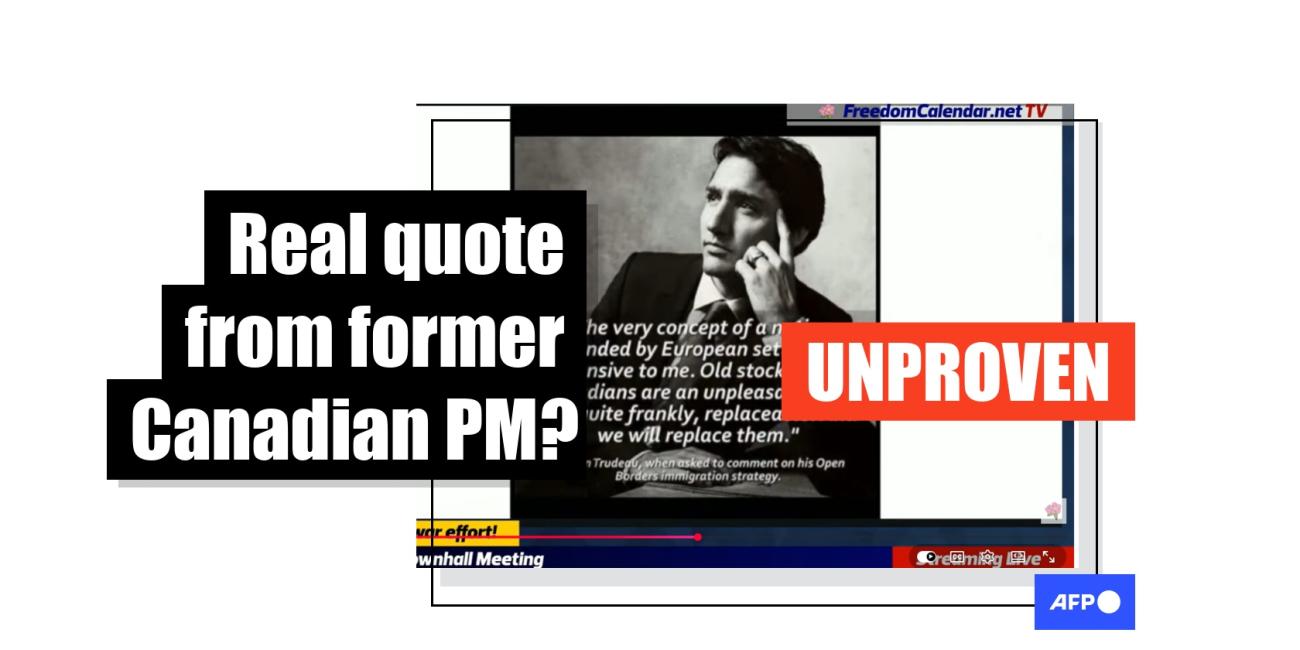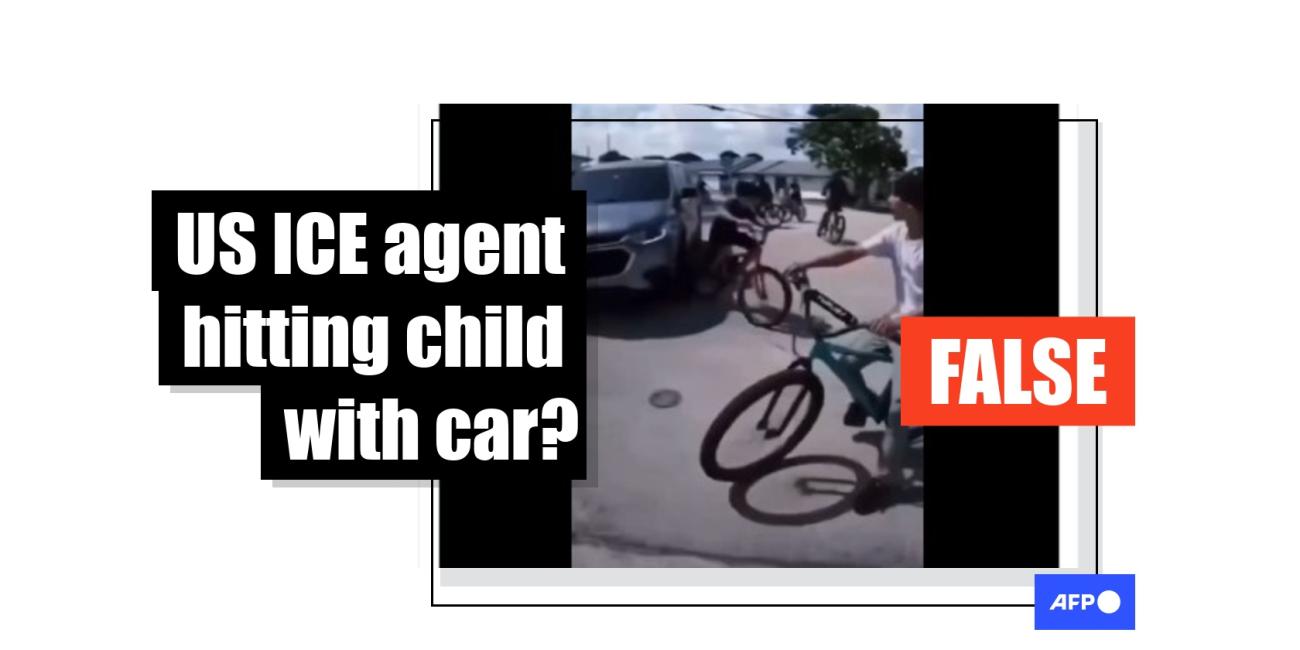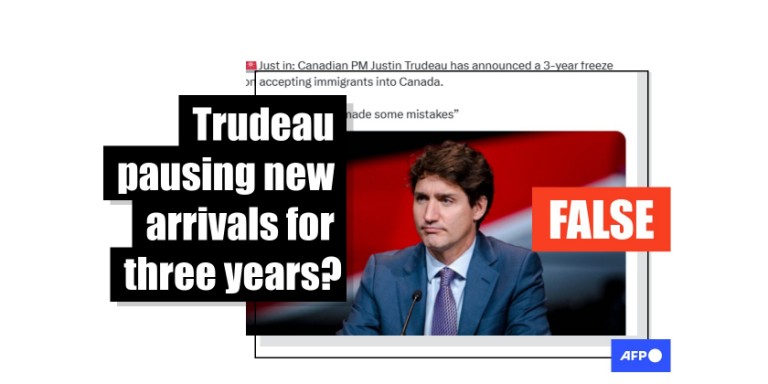
Claims of Canada 'freeze' on immigration are false
- This article is more than one year old.
- Published on December 5, 2024 at 19:45
- 2 min read
- By Gwen Roley, AFP Canada
"Just in: Canadian PM Justin Trudeau has announced a 3-year freeze on accepting immigrants into Canada," claims an X post in a screenshot shared November 27, 2024 on Facebook.
Other posts on Facebook, Instagram, and X repeat the same claim. A TikTok video with more than 400,000 views shows Prime Minister Justin Trudeau making a statement while a user claims the announcement means there will be a "temporary pause" on immigration.
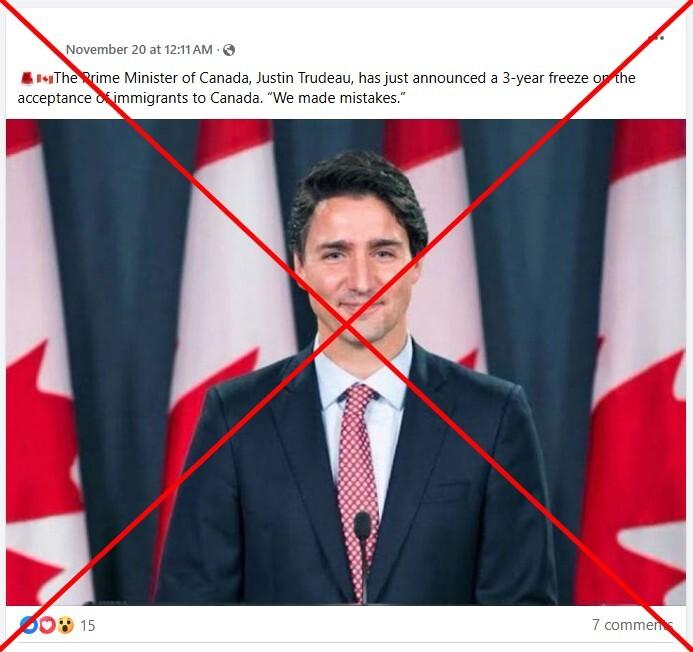
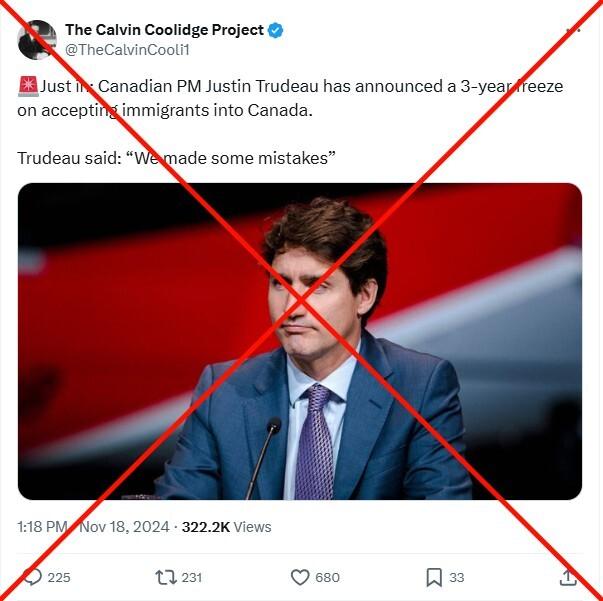
Canadian public opinion has shifted in recent years, with critics saying population growth has strained resources such as food and housing.
In response to changes in economic conditions, Trudeau's ruling Liberal government announced new immigration rules and caps on October 24 -- but they do not halt new arrivals.
"There is no freeze on immigration in Canada," said Isabelle Dubois, a spokeswoman for Immigration, Refugees and Citizenship Canada (IRCC), in a December 4 email.
She said Canada is changing its Immigration Levels Plan (archived here) by reducing its permanent residents targets from a projected 500,000 accepted applicants for 2025 and 2026 to 395,000 and 380,000, respectively. In 2027, the country plans to accept 365,000 permanent residents.
Canada also said in September that it would reduce the number of permits for international students and temporary foreign workers.
Trudeau explained the changes in a video shared November 17 on his social channels (archived here, here, and here).
"We made some mistakes," he says in the clip, a soundbite cited in the misleading social media posts.
The prime minister goes on to say Canada was accepting a large number of immigrants to address labor shortages after the pandemic, but that the government is lowering the number of new arrivals to allow the country's economy to catch up to its growing population.
Read more of AFP's reporting on misinformation in Canada here.
Copyright © AFP 2017-2026. Any commercial use of this content requires a subscription. Click here to find out more.
Is there content that you would like AFP to fact-check? Get in touch.
Contact us


